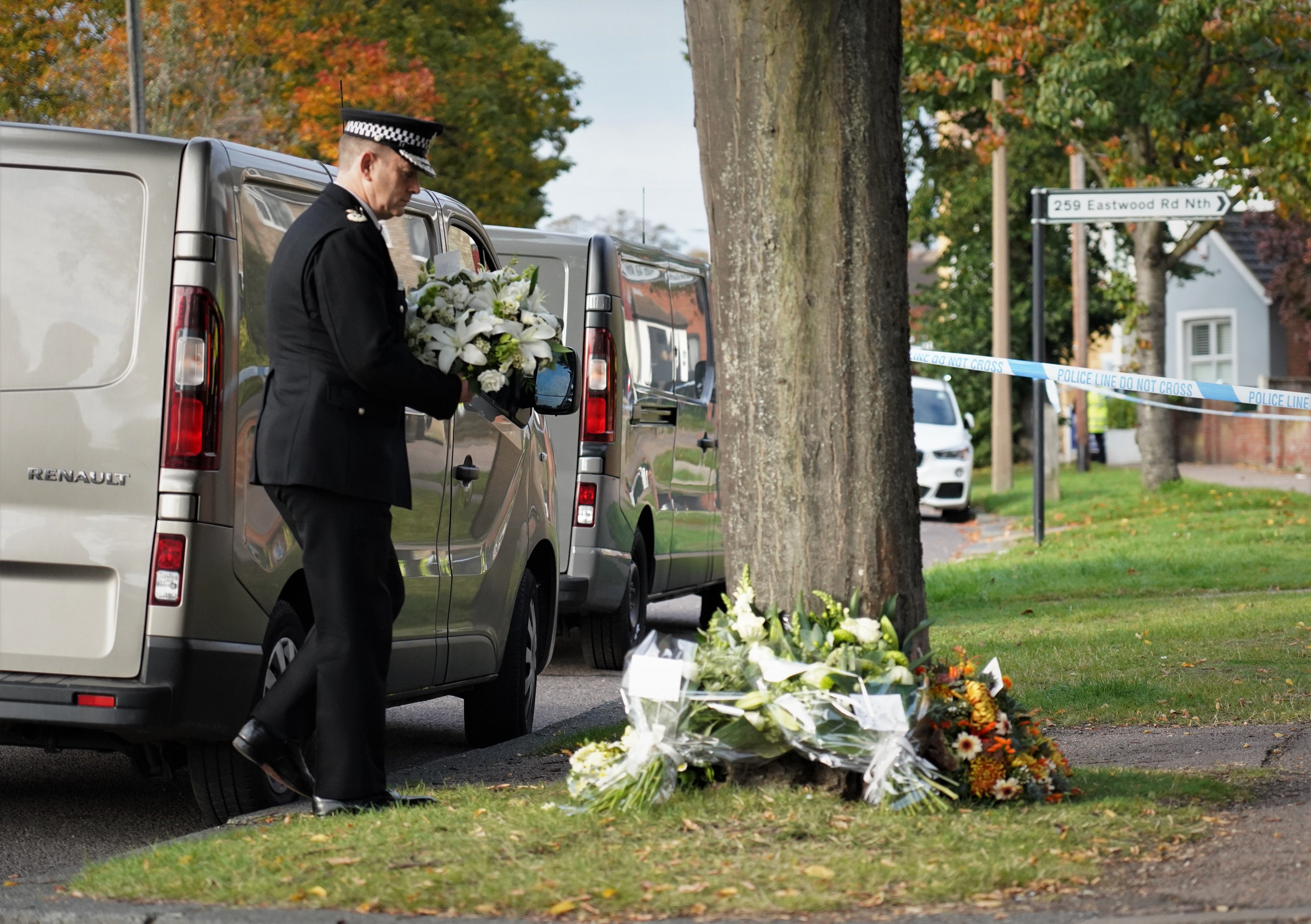The by-election to replace Sir David Amess should be uncontested
Editorial: No party should seek to gain advantage as a result of the killing

When the by-election was held in Batley and Spen to return an MP to replace Jo Cox after her murder five years ago, the main parties refused to contest it, allowing Tracy Brabin, the Labour Party candidate, a free run. Although nine fringe candidates stood in the by-election, Ms Brabin was elected with 86 per cent of the vote.
This was an innovation. On the previous occasion an MP was murdered – Ian Gow, the Conservative MP, was killed by an IRA car bomb in 1990 – the main parties fought the ensuing by-election in Eastbourne, and it was won by David Bellotti, the Liberal Democrat. The time before that, in the Enfield Southgate by-election of 1984, after Sir Anthony Berry, the Conservative MP, was killed by the Brighton bomb, fellow Conservative Michael Portillo was elected to replace him in a three-cornered contest.
It could be argued that a vigorous democratic contest is the best reply to the anti-democratic violence of those who kill elected representatives – as a kind of morality play, acting out how a free and peaceful society resolves its differences.
Yet it feels wrong that a killing should change the composition of our parliament. True, in October 1990, Margaret Thatcher’s government was unpopular – indeed, she was so unpopular that she was forced by her party a month later to leave office. But if Gow had not been murdered, it would not have been possible for the Liberal Democrats to gain a seat from the Conservatives. That gain did not make much difference, and Mr Bellotti lost the seat to the Conservatives at the general election less than two years later, but it was wrong in principle that any party should have gained political advantage as the result of a crime.
That is why we think the parties made the right decision in 2016 to stand aside in Batley and Spen. There is another precedent for their decision, which is the convention that the main parties do not stand against the speaker of the House of Commons in general elections. Thus, Sir Lindsay Hoyle faced only an independent and a Green Party candidate in his Chorley constituency at the last election, just as John Bercow faced a succession of no-hopers – including Nigel Farage in 2010 – in Buckingham.
The convention pays its respects to the non-party role of the speaker, although it is not needed to maintain the party balance in the Commons: that is achieved by the speaker and one deputy of the same party, plus two deputies of the opposing party, abstaining in all votes. But the convention signifies the importance of not interfering in the balance between the parties in parliament as decided by the voters.
By-elections are often held in sad circumstances. There will be one in Old Bexley and Sidcup to replace James Brokenshire, the former cabinet minister, who has died of cancer at the age of just 53. But a by-election caused by a killing is different.
It is often said after a terrible killing that we must carry on with life as usual, otherwise we will “let the terrorists win”. But in the case of a killing such as that of Sir David Amess, carrying on with a normal by-election would risk letting the killer win. The Southend West constituency should not change hands between parties as the result of this crime. The other parties should stand aside in favour of the Conservative candidate.
Bookmark popover
Removed from bookmarks